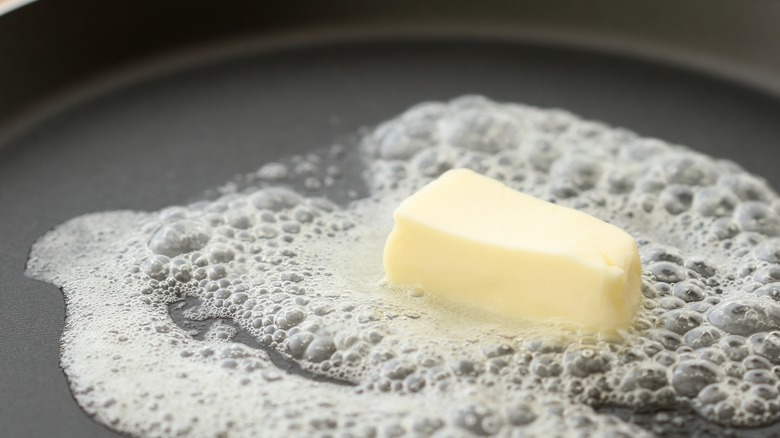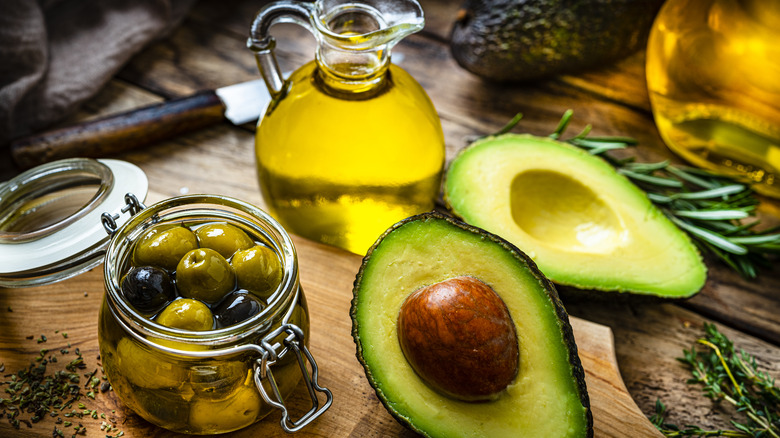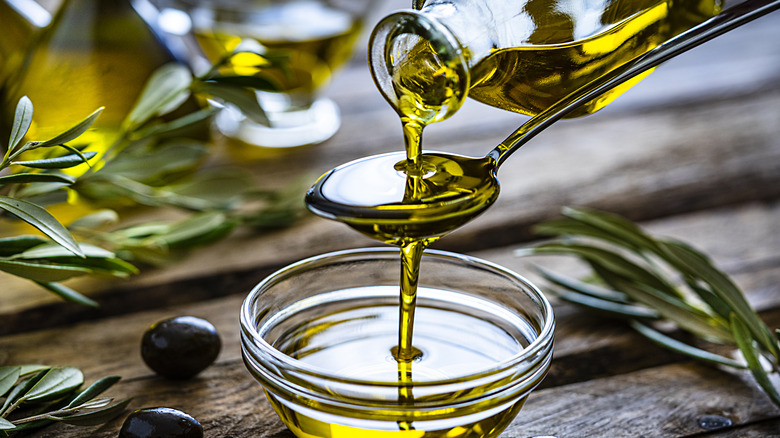3 Rules For Choosing The Best Butter Substitute
Considering how versatile it is, it's no surprise that butter is a mainstay in the pantry of so many kitchens worldwide. Besides giving structure to baked goods like chocolate chip cookies, you can also use it to lend flavor to sauteed vegetables and steaks. Unfortunately, whether due to dietary restrictions, health concerns, or simply running out at home, you may sometimes have to reach for something different than butter — a substitute.
Since butter is a type of fat, you might think that using any other kind of fat, like cooking oil, will do a passable job of substituting butter. Not so much! You have to follow a couple of rules when you make the switch if you want to get as close as possible to the real thing — and you'll need to consider your substitute's fat content, consistency, and flavor.
When looking for a substitute, first think about the fat content. If you're baking, using a substitute with a high-fat content — such as full-fat yogurt — will give you a more moist crust and an airier texture (in addition to a nice, tangy taste perfect for something that can use some extra acidity like a lemon mug cake.) Conversely, if you don't watch out for the fat content and it turns out to be too low, it can cause your baked treat to turn dry and crumbly.
Consider the consistency needed for your recipe
Butter has two forms: Solid and liquid (ghee). Depending on the exact recipe you're making, consider what sort of butter it requires, then take a pick of your substitute accordingly. If the recipe calls for cold, solid butter, like if you're baking shortbread, then choose a solid substitute like vegetable shortening and coconut oil, both of which are solids at room temperature.
Alternatively, if the recipe calls for some clarified butter, just like above, you'll want to look for a liquid substitute. Fortunately, you'll have a broader range of options to choose from here — just about any kind of cooking oil will do the trick. If you want it to be quick and cheap, vegetable oil is on the menu. However, in most situations, especially if you are focused on health when you cook, it might be better to avoid this type, as it's not the healthiest. Go for something like avocado oil, which not only has minimal taste but is also considered a healthy cooking oil.
Last but not least, consider the flavor
An important factor to consider is a butter substitute's flavor. If you're looking to impart a nice flavor to your food, just like how a knob of butter can lend a rich taste to your pan-seared steak, you can sub the butter with a bit of extra-virgin olive oil. Thanks to its sweet, fruity flavor, it'll do a fine job of flavoring your food. The richness of the butter won't be there, but depending on the recipe, it can still deliver a rewarding taste.
In some other cases, though, you may not want the butter substitute to give any flavor to your recipe. This is the case for most baked recipes because, after all, you probably don't want your salted caramel ginger thumbprint cookies to taste like olive oil when you bite into them. Neutral oil blends, like canola and "light" olive oil (olive oil that's been processed, which takes out most of its flavor), can give your baked goods more moist and tenderer crumb without affecting their intended flavor or overpowering the seasonings and spices you add into them.


